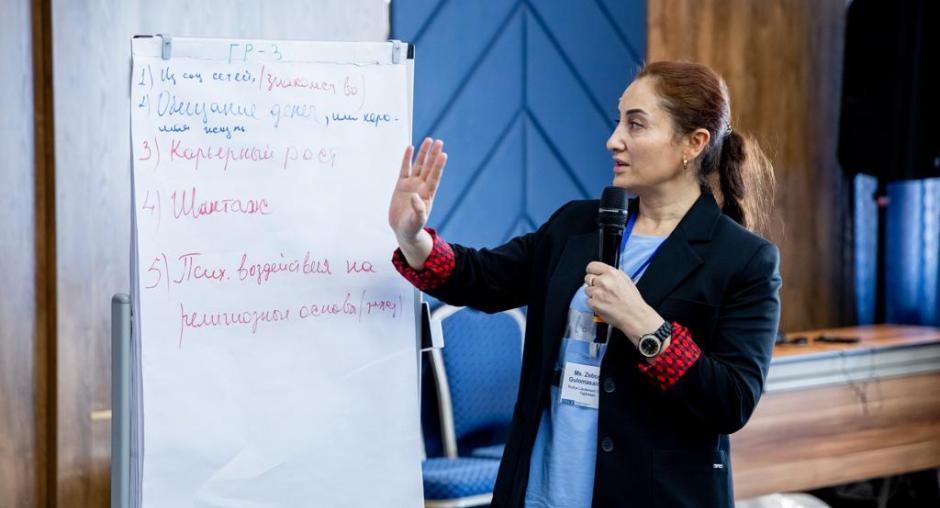Role of women in organized crime in focus at OSCE workshop for law enforcement in Central Asia

On 18 and 19 December, the OSCE Transnational Threats Department, in co-operation with the OSCE Project Co-ordinator in Uzbekistan, organized a regional workshop to present and discuss the findings of the OSCE assessment report on ‘Understanding the role of women in organized crime’ in the context of Central Asia. The workshop was held in Tashkent, Uzbekistan.
The event brought together 30 representatives from the Ministries of Internal Affairs of Kazakhstan, Kyrgyzstan, Tajikistan, Turkmenistan and Uzbekistan. The objective was to enhance their understanding of how women are recruited into organized crime, the roles they play within these criminal networks, as well as how and why they leave lives in organized crime across Central Asia. The workshop further showcased best practices from across the OSCE area on gender-sensitive organized crime prevention initiatives.
The workshop explored the OSCE assessment report findings on the role of women in organized crime. It also facilitated a regional dialogue on emerging trends and challenges in light of security developments in Afghanistan and its effect on organized crime and its actors, including women, across the Central Asian region.
Sergei Sizov, Acting Head of the OSCE Project Co-ordinator in Uzbekistan underscored the importance of understanding the role of women in organized crime during the workshop. “Only by better understanding the role of women in organized crime and by recognizing their agency, can we 1) fully understand the organized crime landscape and its actors, 2) effectively prevent and combat the phenomenon and 3) provide women with access to organized crime prevention and exit initiatives,” he said.
The workshop helped to improve information sharing and the exchange of good practices on organized crime prevention and exit among practitioners and policy makers in the region, while also serving as a platform for discussion and identifying training needs.